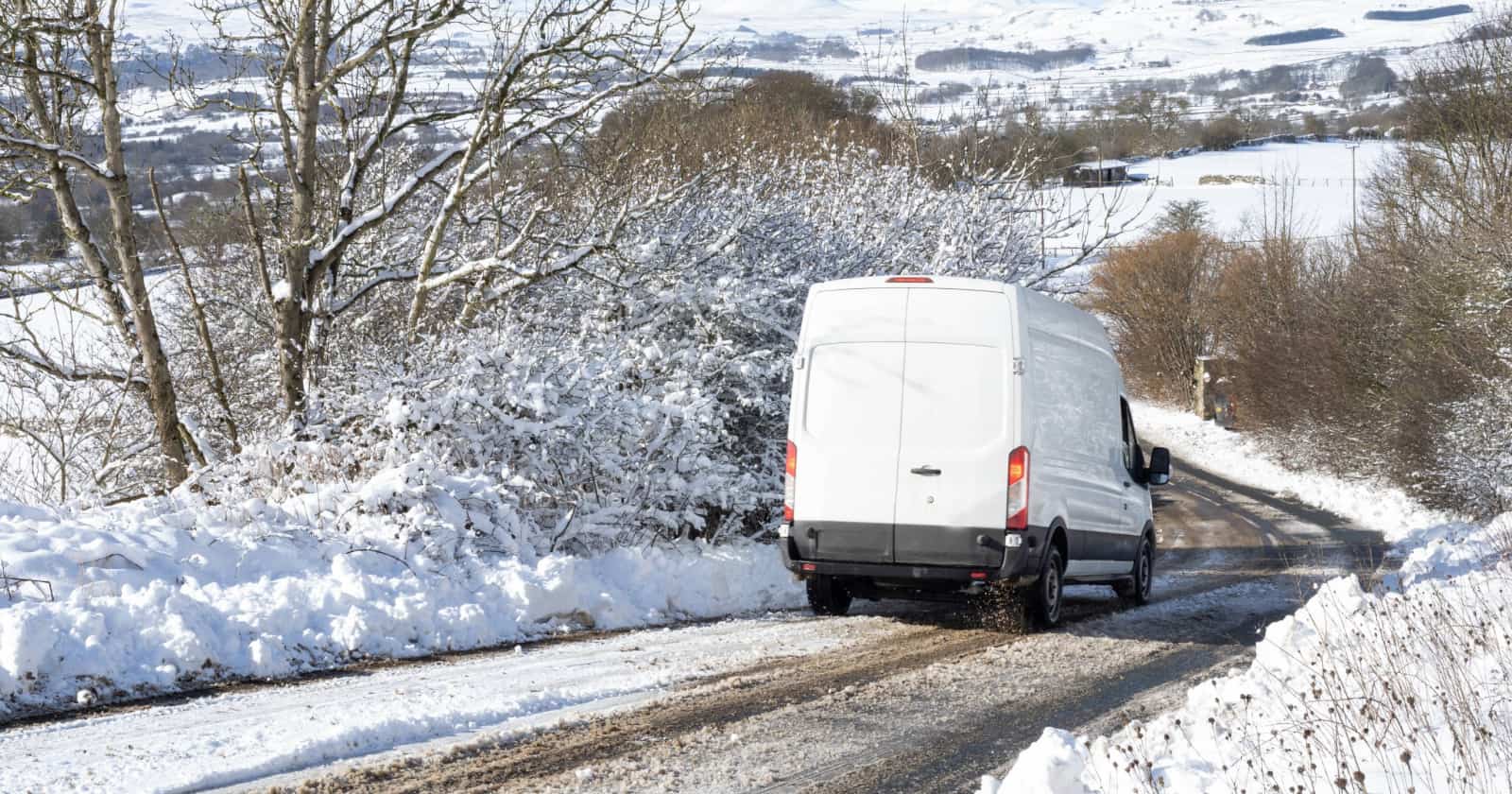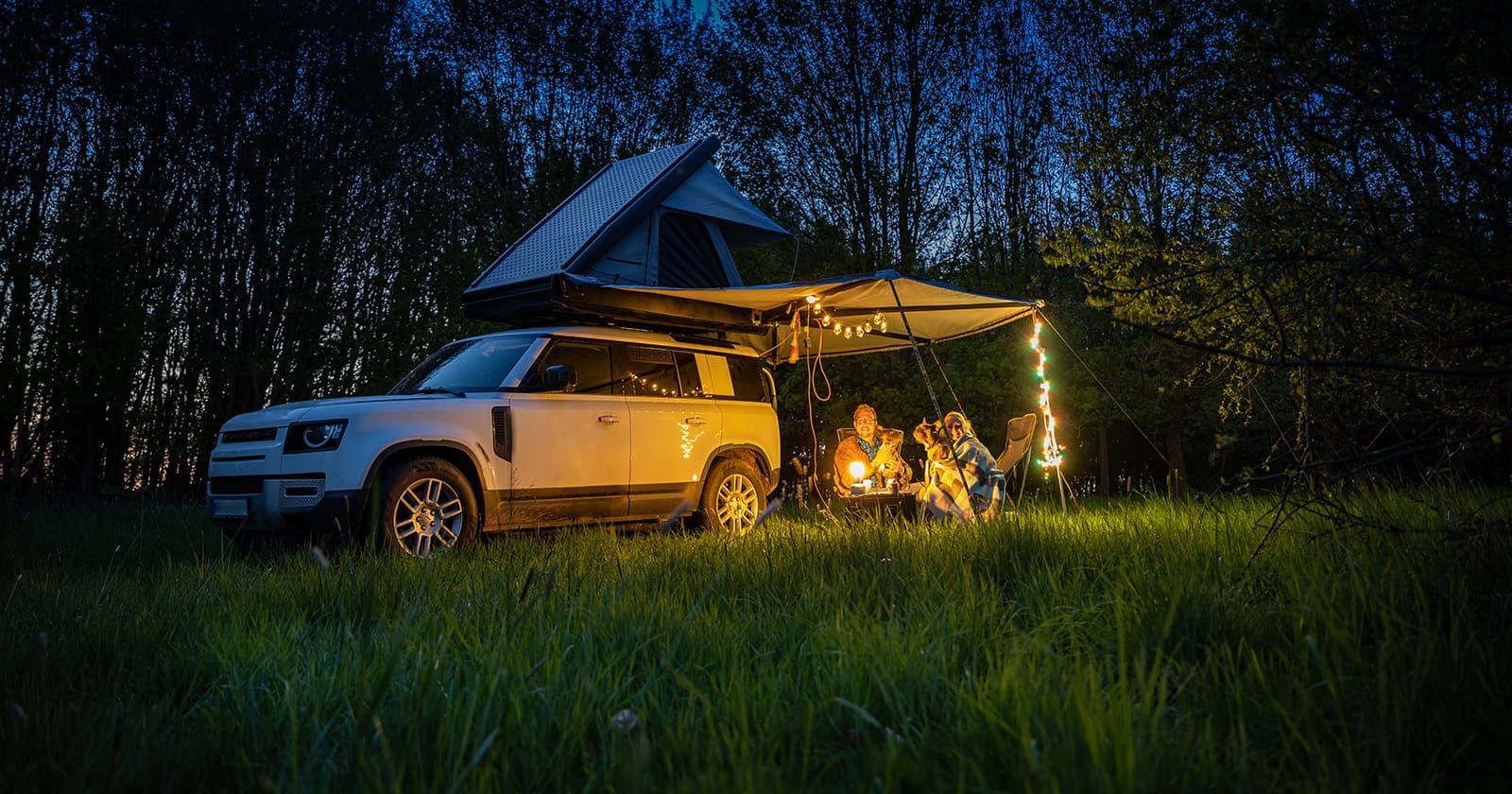Start Planning Your Winter RVing in Canada Trip Early
Have you ever thought about wintering in a Class B or van in the great Canadian outdoors? It may not be winter now, but winter van life in Canada is something you will want to plan ahead.
Imagine the breathtaking vistas covered in a pristine white blanket, the unforgettable encounters with wildlife, and the unmatched tranquility only winter can offer. But let’s not sugarcoat it — the Canadian winter can be harsh and unpredictable, and yes, it can turn dangerous if you’re not well-prepared. From thrilling activities like snowshoeing and skiing to cozy nights in your snug van, this guide will give you some tips to help you make the most of your Canadian winter van life adventure.
How to Pick Your Winter Wonderland: Canadian Destinations That Won’t Turn You into an Ice Sculpture
Canada’s vast landscape offers a smorgasbord of winter experiences, but let’s face it, some are more appealing than others when you’re living in a van. Know where to park that mobile home of yours to balance cold thrills with actual livability.
West is Best for Milder Canadian Winter Van Life
If you’re not a fan of numbing cold but still want to experience the Canadian winter, consider heading west. Vancouver Island and the smaller Gulf Islands are well-known for their more temperate winter climate compared to the rest of Canada.
Why Vancouver Island and the Gulf Islands?
These areas are blessed with milder winters thanks to the moderating influence of the Pacific Ocean. While the rest of Canada is turning into a winter wonderland, you’re more likely to experience a chilly rainforest environment here. That means less snow to shovel and more manageable conditions for a van.
Local Wildlife Adds to the Experience
It’s not just about the weather; it’s also about the scenery and wildlife. These western regions offer an array of local fauna that you can observe from the comfort of your heated van. Expect to see mule deer, Roosevelt elk, and even bald eagles.
Alternative Options for the Adventurous
If you’re the type who loves the bone-chilling cold and the snow-capped mountains, then perhaps the central and eastern parts of Canada are more your style. Just be prepared for harsher conditions, and make sure your van is winter-ready.
Weather Watch: Forewarned is Forearmed
Never head out without checking the weather forecast. Anything below -4°F is asking for trouble. Unless you’re an Antarctic explorer in disguise, it’s best to avoid such extreme temperatures.
Your Van, Your Fortress: Insulation Tips for a Cozy Winter Adventure
Canadian winters can be unforgiving. The right insulation can turn your van from a metal icebox into a cozy retreat.
Reflectix: Your Go-To
Reflectix is essentially aluminum foil with an ego. Stick it on your windows with an air gap for maximum effectiveness. It reflects heat back into your living space.
Window Insulation Kits
Windows are the Achilles heel of insulation. Use a window insulation kit to put an end to that problem. It’s essentially plastic you can shrink-fit to your windows with a hairdryer.
Foam Board Insulation
For the walls and floors, foam board insulation is your friend. It’s lightweight and offers a high R-value. Just cut and fit.
Seal Those Doors
Don’t forget the doors. Use weatherstripping to keep drafts out. Your feet will thank you.
Using the Sun: Your Natural Furnace
Here’s some simple science we all know: the sun emits heat. Park your van in sunny spots whenever possible to take advantage of natural heating.
Foundation Matters: Ground Support Boards for Stability
Canadian winter van life can be unpredictable, with ground conditions varying from frozen to thawing. Ground support boards help you prepare for these changes.
Why Support Boards Are Important
In inconsistent winter conditions, the ground can thaw and soften, making it easier for your van to sink. Support boards distribute your vehicle’s weight more evenly across the surface, reducing the risk of getting stuck.
Material Recommendations
Plywood is a reliable material for support boards. Ensure that it’s sturdy enough to bear your van’s weight without breaking.
How to Place Them
Position the boards under your tires before you park, ensuring they’re centered and stable. Proper placement will save you from having to rectify a sinking van later on.
Cozying Up: Bedding and Heating Options
Let’s talk bedding. Electric blankets and fleece sheets can make your van feel like a cozy haven. Oil-filled electric heaters are a godsend and energy-efficient, and help keep your space warm without making you broke.
Dress for Success: Layering Done Right for Van Life Winter Excursions
When the Canadian winter turns your van into a freezer on wheels, your wardrobe choices make all the difference. Forget the fashion show; layering is your best strategy for conserving heat.
Why Merino Wool is Your New Best Friend
Your base layer is the first line of defense against the cold. Merino wool is ideal for this because it excels at moisture management. Unlike cotton, which absorbs moisture and makes you feel colder, Merino wool wicks sweat away from your skin, keeping you dry and warm.
Mid-Layers are Your Insulation
Don’t underestimate the power of a good fleece or down jacket. Your mid-layers trap air, creating an insulating barrier between you and the cold. Choose materials like synthetic fleece or natural down, which offer excellent thermal benefits without too much bulk.
Outer Layer: The Shield
Your outer layer is your fortress wall against wind and snow. Look for water-resistant, windproof materials like Gore-Tex. The key here is to find something breathable, allowing moisture to escape while preventing cold air from coming in.
Mittens Over Gloves
Mittens keep your fingers together, generating more heat than gloves, which isolate your digits. In extreme cold, every little bit of warmth matters.
Additional Tips
- Hats and Hoods: A substantial amount of body heat escapes through your head. A thermal hat can keep that precious heat where it belongs.
- Footwear: Don’t skimp on quality socks and insulated boots. Cold feet can make even the most beautiful winter landscape miserable.
All About the Utilities: Pipes and Propane
Use heat tape on exposed pipes and tank heaters for your water tanks. For those using propane, insulate your tanks. If temperatures drop below -4°F, a 40-watt light can help keep things from freezing up.
Before You Roll: Checking Driving Conditions
Check conditions regularly—bring snow tires and chains, especially if you’re mountain-bound.
Always Be Prepared: The Must-Have Emergency Kit
Pack enough food, bedding, clothing, and propane to last you a week. Throw in an extra electric heater and some additional propane for good measure. It’s always better to be over-prepared than under-prepared.
Enjoy the Solitude: Winter Camping Perks
Lastly, winter is when you’ll find campsites at their emptiest and most peaceful. You get the beauty, serenity, and a chance to claim that you conquered a Canadian winter in a van.
Conclusion
Embarking on a van life journey is more than just a lifestyle choice; it’s a commitment to freedom, adventure, and self-reliance. From choosing the right camper van to budgeting for your build and ongoing improvements, each decision you make shapes your experience on the open road.
If you found this guide helpful, don’t keep it to yourself like a hidden treasure map. Share it far and wide, and let’s grow the Vanlifer community together. Click the share buttons below and spread the knowledge!





